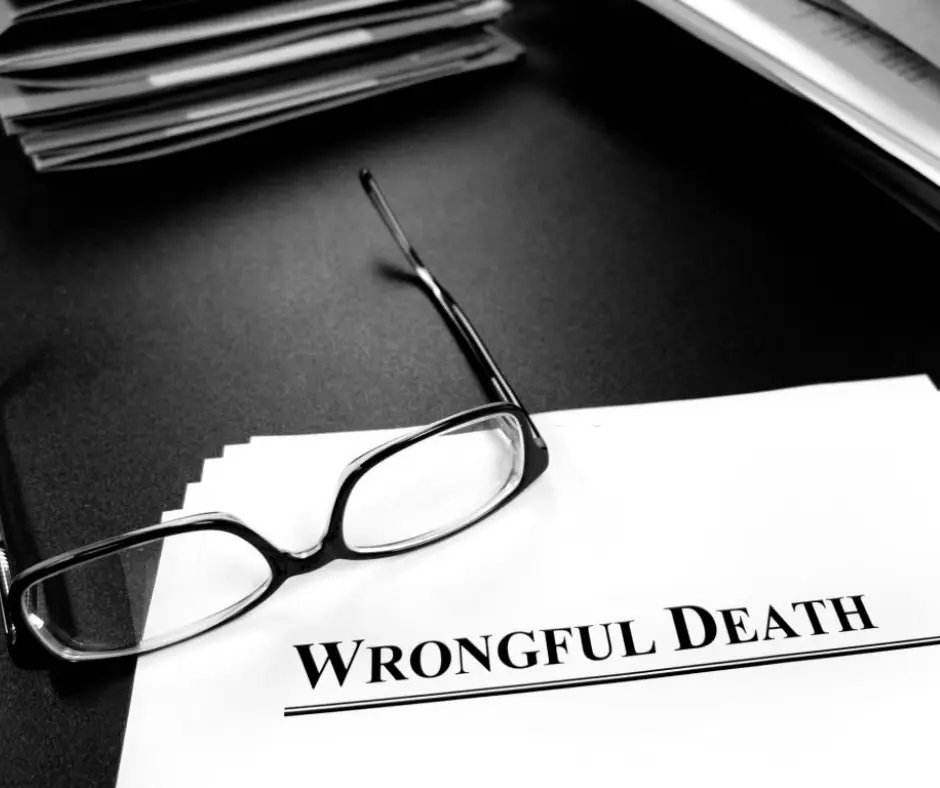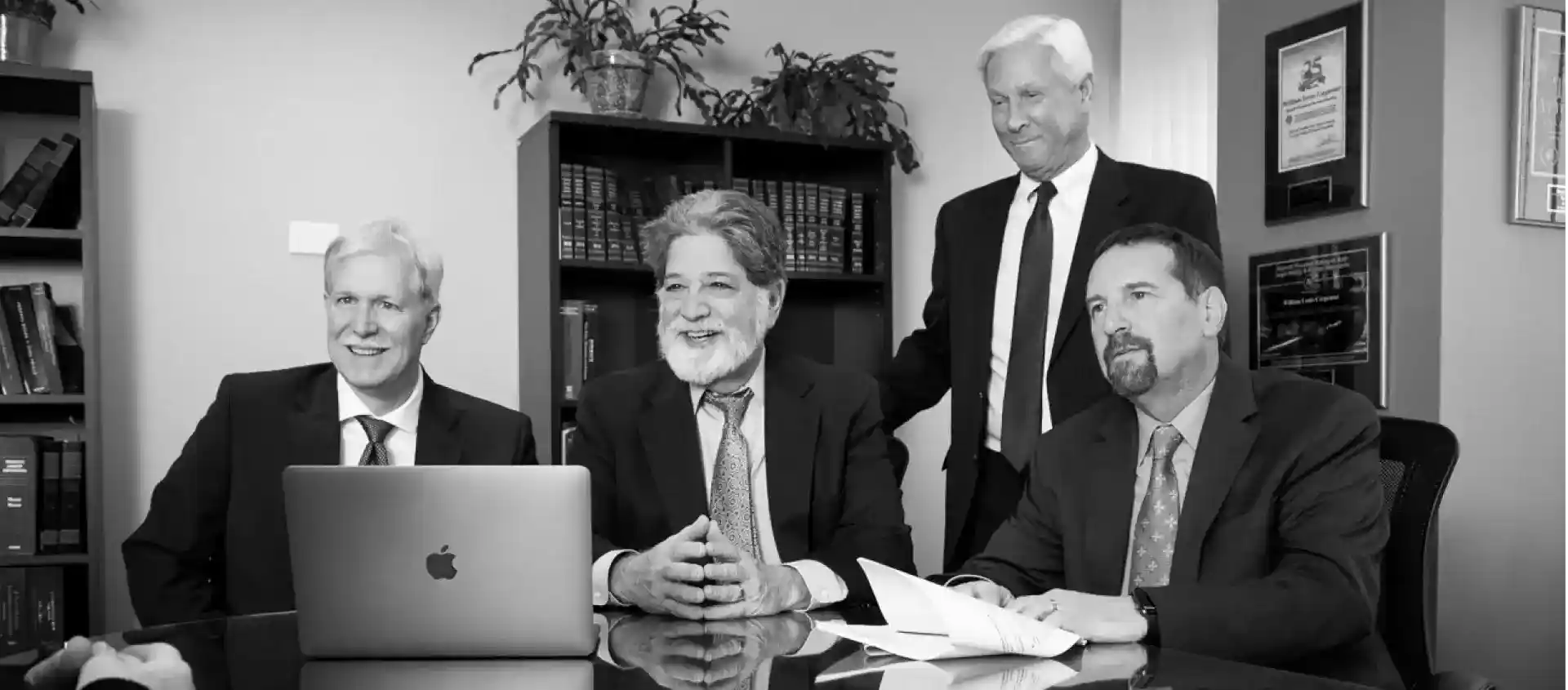
A wrongful death claim arises when someone loses their life due to someone else’s negligence or wrongful act, and their family suffers losses due to their death. Losing a loved one can inflict devastating emotional and financial consequences on the family they leave behind. Losing your loved one’s income can put you in dire financial circumstances that only exacerbate your grief. While a wrongful death claim cannot bring your loved one back, it can reimburse you for the expenses you incur as a result of the death. Recovering compensation from the at-fault party is a way to hold them accountable for their negligence. Contact a wrongful death attorney at Gerash Steiner Blanton, P.C., today to schedule a free initial consultation.
How to Prove a Wrongful Death Claim
In a wrongful death case, the burden of proof lies with the plaintiff, or person filing the lawsuit, to prove the opposing party’s negligence caused their loved one’s death and subsequent losses. You must prove four elements to show negligence:
- Duty of care,
- Breach of duty,
- Causation, and
- Damages.
Our team outlines how to prove each element of negligence in more detail below.
Duty
The first element of negligence requires showing that the at-fault party owed your loved one a duty. In most scenarios, individuals owe other people a duty to act as a reasonable person would in the same or similar circumstances. For example, drivers owe a duty to everyone else using the road to drive in a reasonably safe manner.
Breach of Duty
The second element of negligence requires showing that the at-fault party breached their duty of care to your loved one and their breach caused your loved one’s death. You can prove the defendant breached their duty by showing that they failed to act as a reasonable person would have and that failure caused the death. For instance, after a car accident you can prove a party breached their duty of care by showing that they were:
- Driving recklessly,
- Texting while driving,
- Eating while driving,
- Disobeying traffic signs or signals,
- Speeding,
- Driving under the influence of drugs or alcohol, or
- Failing to signal when changing lanes.
An attorney can compile evidence to show that the at-fault party’s breach caused the accident that resulted in your loved one’s death.
Causation
The third element of negligence requires showing that the at-fault party was the actual and proximate cause of your loved one’s death.
That means you need to prove that the accident that caused your loved one’s death would not have occurred if the defendant hadn’t acted negligently. Additionally, you must prove that the defendant could have foreseen or anticipated that their actions presented a risk of significant danger to those around them. For example, a car accident is a foreseeable result of driving recklessly.
Damages
Lastly, you must prove that the loss of your loved one caused actual damages. Examples of damages the loved ones may incur after the wrongful death of an adult include:
- Funeral and burial expenses,
- Loss of income from the deceased,
- Loss of services provided by the deceased,
- Pain and suffering, and
- Loss of companionship.
Colorado law caps the amount of noneconomic damages, such as these, that can be recovered. The maximum amount that can be awarded depends on when the death occurred, as the limit is tied to inflation and is subject to increase every two years.
Who Can File a Wrongful Death Claim?
Colorado limits the parties eligible to file a wrongful death lawsuit. The only parties potentially eligible to bring a claim for wrongful death are the surviving spouse, surviving children, surviving parents, and designated beneficiaries of the decedent.
Colorado does not allow any eligible party to file a wrongful death suit in the immediate aftermath of your loved one’s death.
During the first year, only a surviving spouse may file a wrongful death claim, with three exceptions:
- The surviving spouse may file an election to include the surviving children as plaintiffs;
- If there is no surviving spouse, surviving children can file a claim; and
- If there is no surviving spouse or children, the decedent’s parents can file a claim.
In the second year, the decedent’s lineal descendants can file a wrongful death claim or join the surviving spouse’s suit.
What Kind of Accidents Can Result in a Wrongful Death Claim in Colorado?
Legal actions based on wrongful death can arise from a wide variety of incidents, such as:
- Car accidents,
- Bicycle accidents,
- Truck accidents,
- Pedestrian accidents,
- Criminal assaults,
- Construction accidents,
- Medical malpractice, and
- Premises liability claims.
This is a non-exhaustive list of scenarios that can spur a wrongful death claim. If someone else caused your loved one’s death, contact our office to see if you qualify to file a claim.
Statute of Limitations for a Wrongful Death Claim
Generally, Colorado imposes a two-year statute of limitations during which an eligible plaintiff can file a lawsuit against the defendant. The two-year period starts on the date of your loved one’s death. If you file your wrongful death claim after the statutory period expires, your case will likely be dismissed. The statute of limitations forces plaintiffs to bring their lawsuits in a timely fashion to ensure evidence of the accident is still available and to prevent defendants from living in constant fear of being called into court.Colorado law has multiple exceptions to the two-year statute of limitations that can increase the time limit for a wrongful death claim. For example, if your loved one died in a car accident, the statutory period automatically increases to three years.
Contact a Lawyer at Gerash Steiner Blanton, P.C., to Discuss Whether You Qualify to File a Wrongful Death Claim
We know that no amount of money can come close to fully compensating you for losing a loved one. Still, a wrongful death claim can help you stay afloat financially while you process the loss and recover from your grief. Our team at Gerash Stainer & Blanton, P.C., has decades of combined experience advocating for the rights of our clients. We listen carefully to our clients’ concerns, answer their questions, and provide regular updates throughout the legal process. Contact us today to schedule an appointment with a member of our team.

